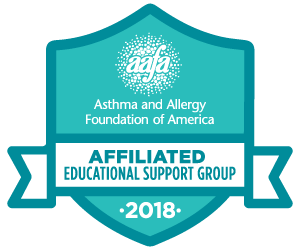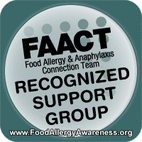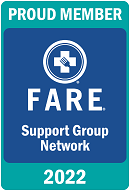|
by Janette Kennedy, MAEd  Anxiety permeated the principal’s demeanor as she invited us into the conference room. The past months had been filled with increasingly contentious emails and meetings as we tried to develop a plan to ensure that my daughter would be both safe and included at school. You see, she has life-threatening allergies to multiple foods and there are things she needs to survive that other children, and even those with food allergies, may not need. Obviously, we had let the process devolve to this moment. Here we were though, back at the table, and we learned a great deal in the process. Communication, planning, and preparation is the only way for my daughter to be able to safely participate in a world that contains her allergens nearly everywhere we go. Our goal was to have the necessary precautions and preparedness in place so that she and her teachers could focus their attention on learning and growth. To achieve this, we developed a 504 plan with the school: a legal document based on the Americans with Disabilities Act (ADA) that includes accommodations and identifies who is responsible, ensuring that each student with a disability has “their educational needs met to the same degree as students without disabilities” and “equal opportunity to participate in the (school’s) program” as described in Questions and Answers on the ADA Amendments Act of 2008 for Students with Disabilities Attending Public Elementary and Secondary Schools. The plan is designed by a team, including people who know the school’s programs and people who know the student, especially the parents. At its heart, it is an individualized plan addressing a specific student’s unique disability needs. It is not the forum to create policy for the entire school. BenefitsFor us, the benefits of having a 504 plan have been:
Even with a 504 plan, the crucial part of safety and inclusion in school is to keep the communication with your child’s school as open and clear as possible. This may mean taking steps to re-open lines of communication when things have gotten contentious. Tips for Solution-Focused CommunicationAlthough I have often learned the hard way, I gained a few tips on preventing breakdowns in communication and rebuilding communications when things have gotten contentious:
In all of this, you absolutely must take extra care of your mental and emotional health. Really, it might actually take zen master levels of self-control at points. Precisely because you are advocating for your child’s survival and long-term development though, it is worth it to take the time to step back, breathe, and seek out the support you need. If things fall apart, that is okay too. You take a break, make adjustments, find some common ground, and go back in and find a way forward. That’s always easier said than done, but it can be done. For a list of helpful resources about the 504 process and to help plan for upcoming meetings, visit FAAM's Back-to-School Resources.About the Author: With a background in special education and mother of kids with food allergies, Janette has navigated the food allergy world and 504 process in New York, Virginia, and Tennessee. She is a recent graduate of the Volunteer Advocacy Project, and is excited to share the many insights gained from her missteps as well as successes. She is also an MFA candidate in Writing. FAAM thanks Janette for answering questions as our "504 mentor" and contributing to Food for Thought and list of resources for 504 plans.
0 Comments
Leave a Reply. |
Food for Thought is the blog for the Food Allergy Alliance of the Mid-South. FAAM's mission is to provide food allergy support, education, advocacy, fellowship & fun for Memphis, TN and surrounding areas.
Archives
August 2023
Categories
All
Terms of Use Disclaimer:
By using this site, you are agreeing to the terms of use stated. If you do not agree with these terms, please do not use this site. The content on this web site and any information presented by FAAM is for informational purposes only and NOT a substitute for medical advice, diagnosis or treatment. The authors are not offering individual medical advice; this material is for reference only. A physician or other qualifying medical professional should always be consulted for medical advice/diagnosis. The authors of this web site; anyone associated with FAAM as members, advocates, leaders, or advisors; Friends of FAAM and/or anyone involved with the production of this web site are not responsible, and do not assume responsibility for any loss, damage, injury, illness, death, or other negative impact that may occur after reading and using the information on this web site. If you have a medical emergency, call 911 immediately and follow up with a physician. |
Providing support, education, advocacy, & fellowship for the food allergy community of Memphis, TN and surrounding areas
P.O. Box 342907 | Memphis, Tennessee 38184-2907 | (901) 300-0790 | Email FAAM
FAAM is a 501(c)(3) nonprofit organization. Copyright © 2015-2024, Food Allergy Alliance of the MidSouth, All rights reserved.
FAAM is a 501(c)(3) nonprofit organization. Copyright © 2015-2024, Food Allergy Alliance of the MidSouth, All rights reserved.



